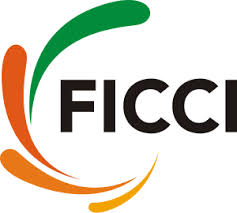 Points raised by Shri Sidharth Birla, President FICCI, in the meeting with the Hon’ble Finance Minister, Shri Arun Jaitley on June 6, 2014
Points raised by Shri Sidharth Birla, President FICCI, in the meeting with the Hon’ble Finance Minister, Shri Arun Jaitley on June 6, 2014
· Conducive Tax Environment
There is too much pressure on the tax officers to maximise revenue collections leading to arbitrary adjustments/additions, denial/delay in refunds/drawback, disputes and pointless litigation. Revenue generation is dependent on the economic activity in the country; revenues cannot be enhanced by prescribing artificially high targets for the tax officers. Government should make earnest efforts to move away from the aggressive revenue approach and provide a genuine non-adversarial and conducive tax environment.
· Introduce Policy on Retrospective Legislation
A major setback to the investment climate in India in the recent times has been the slew of retrospective amendments carried out in the tax laws as a part of the Finance Act, 2012. FICCI believes that is crucial for the Government to declare as a policy that retrospective legislation shall not be resorted to, save in rarest of cases, but never for creating a fresh onus or liability for a previous period. Such policy can be announced as a part of the budget speech, or laid as a statement of policy in the Parliament.
· Goods and Services Tax
GST should be implemented at the earliest. All indirect taxes to be subsumed and no sector of the economy should be left outside its ambit.
· Direct Taxes Code
Considering the time that has elapsed since the first Direct Taxes Code Bill, 2009 was introduced by the Government and many provisions of the DTC having been incorporated into the Income Tax Act, 1961; the Government needs to review the necessity of a Direct Taxes Code at this point of time.
· Investment Allowance
The Finance Act, 2013 has allowed Investment allowance at 15 percent on investments made by a manufacturing company in new Plant and Machinery acquired and installed between 1 April 2013 and 31 March 2015 if the same exceeds Rs. 100 crores. Considering, the long gestation period for huge investments and to meet the objective of this provision, the prescribed time for making new investment should be increased from 2 years to at least 5 years and further, the minimum threshold of Rs. 100 crores needs to be reduced substantially to revive and boost investments in the manufacturing sector.
· Dealing with Unaccounted Money lying abroad
The Government should look at ways to widen the tax base by bringing into tax net the income/undeclared assets lying abroad. Though being fully sensitive on the Government’s rights to appropriately deal with defaulters, FICCI has strongly recommended in last year’s memorandum and reiterates that India enters into an agreement with countries like Switzerland on the lines of similar treaties entered into it by the UK as this will ensure that taxes are collected on such monies, including future earnings.
· Tax Rebate for Start-ups
Introduce rebated income tax for small start-up businesses linked to employment generated by the start-up business. The benefit could be for a period of 3-5 years only.
· Dispute resolution in tax matters
Dispute resolution mechanism for tax matters in India needs an overhaul. A fair mechanism to resolve disputes will put an end to unwarranted litigation and ensure that tax issues are settled in an expeditious and fair manner.
· Mitigate Food Inflation
Urgent measures are required to mitigate food inflation, as it erodes income of all. This requires straightening kinks on the supply side by revisiting the existing procurement practices and administered price mechanism, besides formulating a comprehensive agriculture policy. FICCI has suggested creation of Food Inflation Response & strategy Team (FIRST) under PMO to monitor real time data on food production, stocks and prices and co-ordinate rapidly to balance supplies. We need to plan a Comprehensive Agricultural Policy covering production, productivity, water management, soil and seed health, market access and insurance for farmers, which are critical factors required to boost agriculture production and productivity. Specific plans should be made for replicating the ‘White Revolution’ for milk across States, and launching a ‘Rainbow Revolution’ for fruits and vegetables across States.
